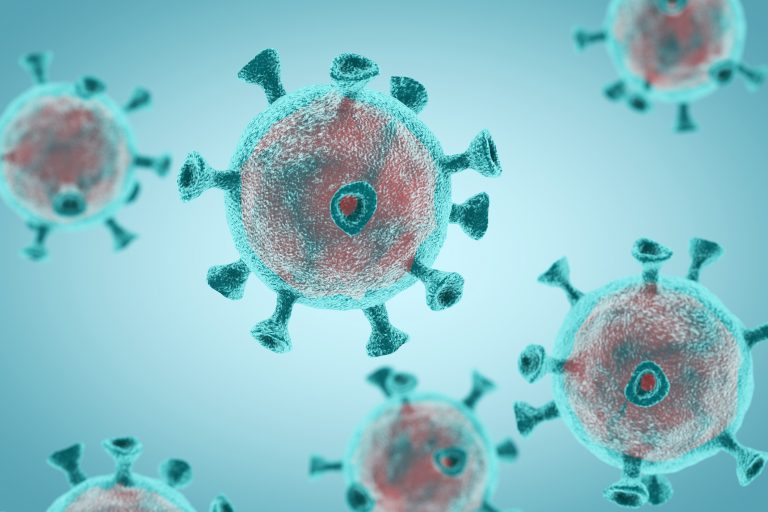
Findings from an international team of investigators lead by scientists from Sweden’s Karolinska Institutet published in the journal Cell shows that mild cases of COVID-19 can trigger robust memory T cell responses, even in the absence of detectable virus-specific antibody responses. The research indicated that T cell responses generated by natural exposure to, or infection with, SARS-CoV-2 may be a significant immune component to the prevention of recurrent episodes of severe disease.
“We are currently facing the biggest global health emergency in decades,” said senior study author Marcus Buggert at the Karolinska Institutet. “In the absence of a protective vaccine, it is critical to determine if exposed or infected people, especially those with asymptomatic or very mild forms of the disease who likely act inadvertently as the major transmitters, develop robust adaptive immune responses against SARS-CoV-2 … Our findings suggest that the reliance on antibody responses may underestimate the extent of population-level immunity against SARS-CoV-2.
The researchers report their results in a paper titled, “Robust T cell immunity in convalescent individuals with asymptomatic or mild COVID-19.”
To date, there is limited evidence of reinfection in humans with previously documented COVID-19, the authors noted. Most studies of immune protection against SARS-CoV-2 in humans have focused on the induction of neutralizing antibodies. But antibody responses tend to wane and are not detectable in all patients, especially those with less severe forms of COVID-19. “It will therefore be critical in light of the ongoing pandemic to determine if people with milder forms of COVID-19 develop robust immunity against SARS-CoV-2,” they commented.
Research in mice has shown that vaccine-induced memory T cell responses, which can persist for many years, protect against the related virus SARS-CoV-1, even in the absence of detectable antibodies. But it’s not been know how SARS-CoV-2-specific T cell responses relate to antibody responses or to the clinical course of COVID-19 in humans. “SARS-CoV-2-specific T cells have been identified in humans,” the researchers commented. “It has nonetheless remained unclear to what extent various features of the T cell immune response associate with serostatus and the clinical course of COVID-19.”
To address this gap in knowledge, Buggert and his collaborators assessed SARS-CoV-2-specific T cell and antibody responses in more than 200 individuals from Sweden across the full spectrum of exposure, infection, and disease. “ … we used a systematic approach to map cellular and humoral immune responses against SARS-CoV-2 in patients with acute moderate or severe COVID-19, individuals in the convalescent phase after mild or severe COVID-19, exposed family members, and healthy individuals who donated blood before (2019) or during the pandemic (2020),” they wrote.
They found that during the acute phase of infection, the T cell responses were associated with various clinical markers of disease severity. “We found that T cell activation, characterized by the expression of CD38, was a hallmark of acute COVID-19,” they noted. “In particular, memory CD8+ T cells from patients with acute moderate or severe COVID-19 expressed a distinct cluster of markers associated with activation and the cell cycle, including CD38, HLA-DR, Ki-67, and PD-1. “A similar pattern was observed among memory CD4+ T cells from patients with acute moderate or severe COVID-19.”
After recovery from COVID-19, SARS-CoV-2-specific memory T cell responses were detectable. “Acute phase SARS-CoV-2-specific T cells displayed a highly activated cytotoxic phenotype that correlated with various clinical markers of disease severity, whereas convalescent phase SARS-CoV-2-specific T cells were polyfunctional and displayed a stem-like memory phenotype,” the authors noted. The strongest T cell responses were present in individuals who recovered from severe COVID-19.
In line with expectations, all 23 individuals who recovered from severe COVID-19 developed both SARS-CoV-2-specific antibody and T cell responses. But, surprisingly, SARS-CoV-2-specific memory T cell responses were detected months after infection in exposed family members and in most individuals with a history of very mild COVID-19, sometimes in the absence of SARS-CoV-2-specific antibodies.
Among the 28 exposed family members, only 17 (a few more than half) had detectable antibody responses, whereas nearly all (26/28) showed T cell responses. Among the 31 individuals who recovered from mild COVID-19, almost all had detectable antibody responses (27/31) and developed T cell responses (30/31). “Importantly, SARS-CoV-2-specific T cells were detectable in antibody-seronegative exposed family members and convalescent individuals with a history of asymptomatic and mild COVID-19,” the team noted. “Higher frequencies of T cell responses were also found in exposed seronegative family members compared to unexposed donors.”
“Our findings suggest that the reliance on antibody responses may underestimate the extent of population-level immunity against SARS-CoV-2,” Buggert says. “The obvious next step is to determine whether robust memory T cell responses in the absence of detectable antibodies can protect against COVID-19 in the long term.”
“Collectively, our data provide a functional and phenotypic map of SARS-CoV-2-specific T cell immunity across the full spectrum of exposure, infection, and disease,” the team concluded. “The observation that many individuals with asymptomatic or mild COVID-19, after SARS-CoV-2 exposure or infection, generated highly durable and functionally replete memory T cell responses, not uncommonly in the absence of detectable humoral responses, further suggests that natural exposure or infection could prevent recurrent episodes of severe COVID-19.”













